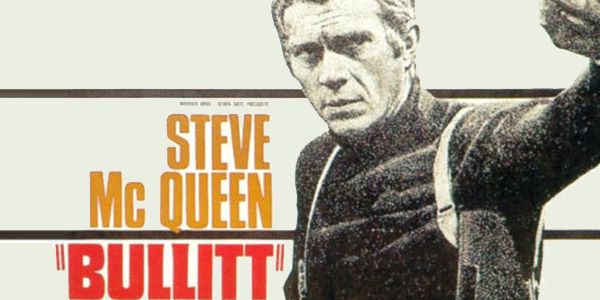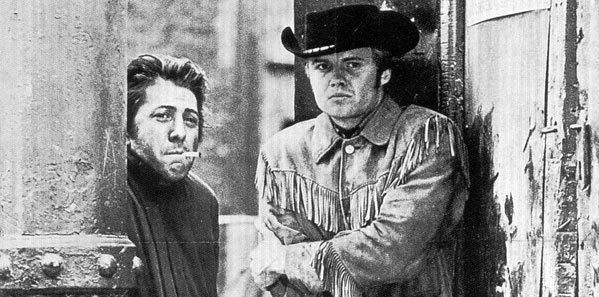A book 10 times the size of The Bible could be entirely devoted to a discussion of which directors were all-time greats, but space and your valuable reading time means that we are only able to offer a brief taste of a few of the directors whose films are included in our review section.
WOODY ALLEN
A New Yorker to the bone, Allen developed his very personal brand of talky, neurotic humour as a stand-up comic. Zany hits like
Bananas gave way to more introspective and some would say less entertaining films, but more recent offerings like
Mighty Aphrodite are a joy.
ROBERT ALTMAN
It's hard to imagine this maverick director helming episodes of
Bonanza, but after making his first feature,
The Delinquents,that's what he did. Luckily, he escaped and broke into the top rank with M*A*S*H* in 1970, pioneering one of the most recognisable techniques which was to record sound in a way that allowed actors to speak over each other's lines in a far more naturalistic style than had been heard before. Altman's best films, like
Nashville, McCabe And Mrs Miller and
Short Cuts, feature large casts and wandering narratives, and he likes to use shallow focus to pick his protagonists out of seemingly endless crowds.
LINDSAY ANDERSON
Iconoclastic British director with a passion for socially concious filmmaking and a distaste for Hollywood--except for John Ford, about whom he wrote a succesful biography.
This Sporting Life, a tense study of a couple's affair in 1960s Yorkshire, embodies his concerns with human desires repressed by convention. His loose trilogy
If..., O Lucky Man! and
Britannia Hospital, all set around the character of Mick Travis (Malcolm McDowell) became increasingly farcical, but Anderson's disgust with all things bourgeois shines throughout.
JOEL AND ETHAN COEN
Although Ethan is credited as producer and Joel as director, the Coen brothers work very closely on all aspects of making their films. They draw deeply on classic Hollywood cinena, but make the genres their own with stylish scripts and inspired perfomances. Their first three films all refer heavily to established genres--
Blood Simple to film noir,
Raising Arizona to madcap comedy
,Miller's Crossing to gangster films, but each one is far more than just an homage to filmmakers of the past.
FRANCIS FORD COPPOLA
Like so many top directors, Coppola made low-budget schlock for Roger Corman, but quickly progressed to sumptuous epics with a trademark attention to detail, as
The Godfather and
Apocalypse Now. Coppola has won five Oscars, but some of his films (such as
One From The Heart and
The Cotton Club) have been spectacular box-office flops.
DAVID CRONENBERG
He started out as a purely horror director with films like
They Came From Within, before moving on to more mainstream subjects, often with a horrific edge. Exploding heads (
Scanners), TV sets with human entrails (
Videodrome) and a sexual fetish for car accidents (
Crash) may sound like gimmicks but Cronenberg's movies always trancend the horror.
FEDERICO FELLINI
His best movies were canvases on which he painted sprawling casts of grotesques engaged in stories of love, creativity and satire. His distinctive imagination led to the adjective "Felliniesque" being used to describe any eccentric and colourful film moments.
STANLEY KUBRICK
It's rare that a single filmmaker is responsible for such diverse masterpieces as
Spartacus, Dr. Strangelove and
2001: A Space Odyssey, but Kubrick's cinematic genius was never limited to a single genre. Controversial stories like
Lolita and
A Clockwork Orange were given a stunning visual gloss without compromising the impact of their subject matter, and although his output was never prolific, it is consistently interesting and provocative.
SPIKE LEE
Lee's technical brilliance is matched by his often in-your-face approach to telling things the way he sees them. Whether an early comedy like
She's Gotta Have It or one of his more serious later films like
Malcolm X, Lee's films are characterised by sharp observation, great perfomances, and a penchant for tackling the uncomfortable issue of racism in all its forms.
DAVID LYNCH
Just when everyone thought brilliant but weird films like
Eraserhead, Wild At Heart and
Lost Highway were the only kind of film Lynch was interested in making, along came
The Straight Story, one of the most touching and direct films of recent years.
OLIVER STONE
If there's a conspiracy theory out there, Stone will have made a film about it, whether it's
JFK, Salvador or his Vietnam trilogy:
Platoon, Born On The Fourth Of July and
Heaven And Earth. His style is to wake up the audience with fast cutting, huge changes of pace and vibrant perfomances extracted from, if rumours are to be believed, terrified actors. No matter what he does to get the films made, he pulls no punches in getting his stories across.
ORSON WELLES
Despite making only a handful of films on his own terms, Welles looms large over filmmaking history as the director who still claims the title of best feature debut.
Citizen Cane, made when Welles was only 26, revealed an extraordinary cinematic gift and directors all over the world have adopted Welles' use of eye-popping camera angles, deep focus, sound devices and montage.
The Magnificent Ambersons and
Touch Of Evil are also visionary films.
































































